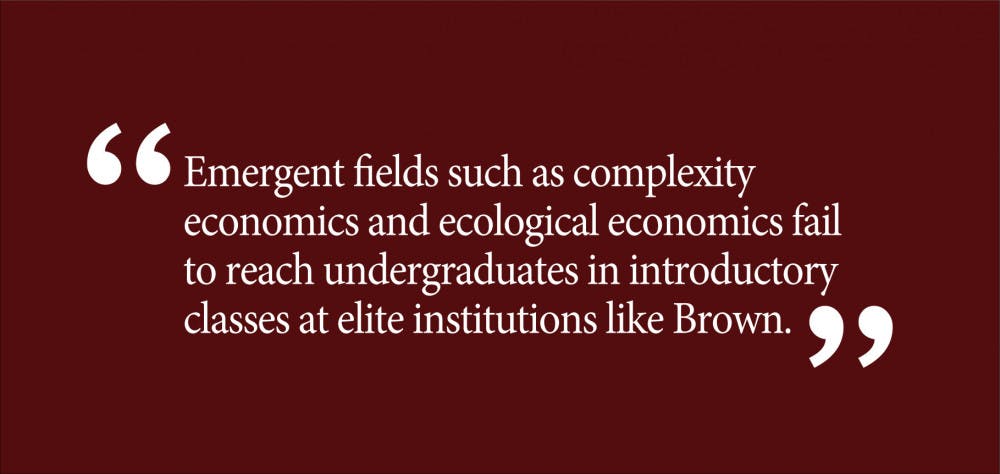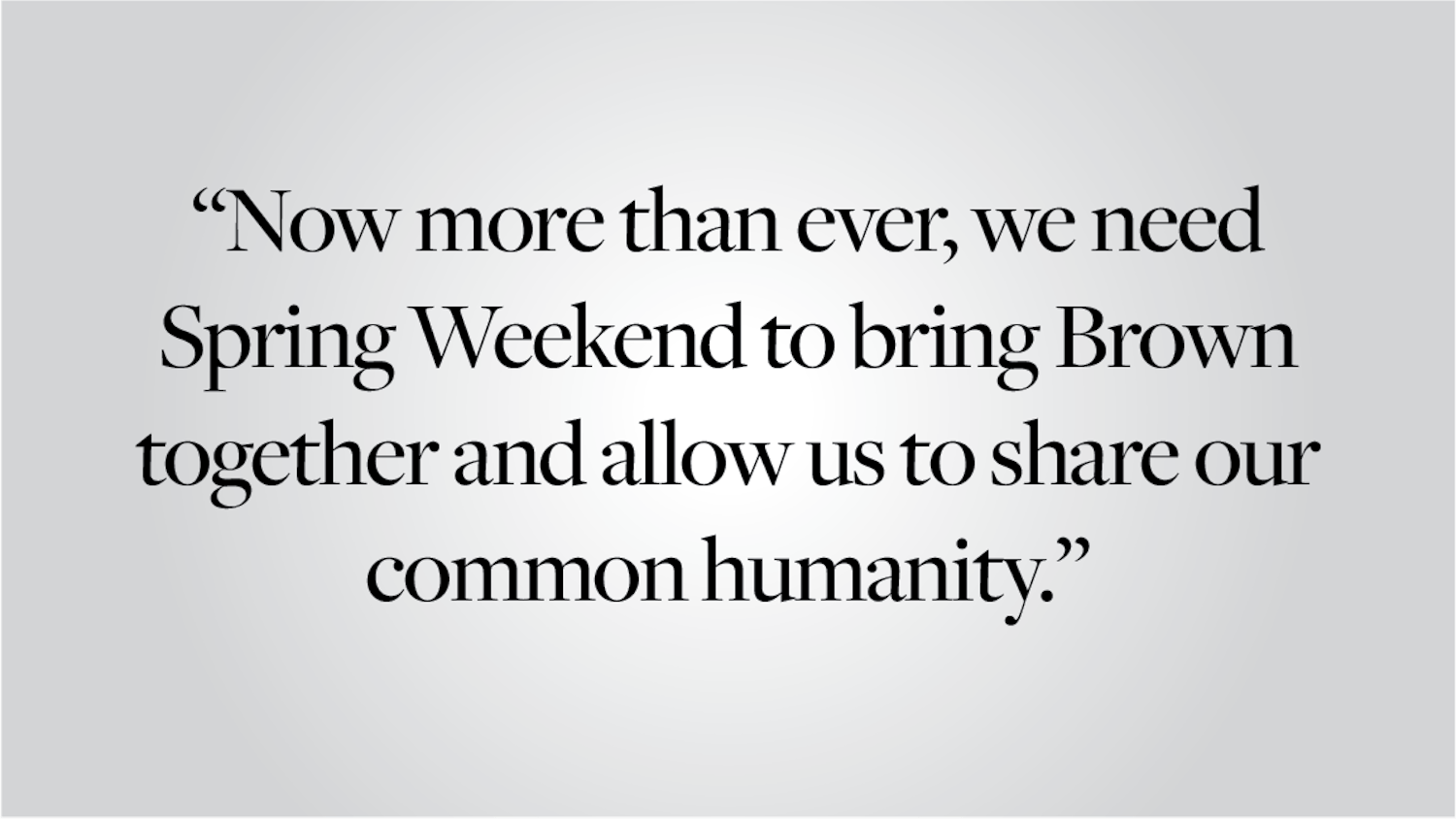Every year, around 400 undergraduates sign up for the introductory course Econ 0110: “Principles of Economics.” Nearly four out of every five students in the current iteration of this course are first-years. For them, it may be their first serious exposure to economic policy.
It might also be the last, especially judging by Critical Review, which indicates that a large number of attendees do not plan to concentrate in economics. Despite competent and well-intentioned professors, this course, like nearly every other introductory economics course in every liberal university in the western world, presents a highly biased and overly simplistic view of human society. Even worse, it presents that view as hard mathematical fact to people who may eventually go into policymaking with little exposure to the foundations of mainstream economic theory beyond this class.
Economics, in its current pedagogical approach, seeks to establish a set of well-defined, abstract axioms from which students and practitioners can derive predictions. (The introductory textbook used at Brown, Gregory Mankiw’s “Principles of Economics,” is renowned and hated among undergraduates for its level of abstraction.)
We have all heard about the most famous of these axioms: the laws of supply and demand. Under certain conditions, generally in a free market, these laws lead people to trade goods in ways that make everyone better off. At a very basic level, this result implies that societies with more and freer markets will have happier citizens. It’s simple, according to Mankiw.
If this seems like an odd approach to a social science given how messy and decidedly not simple human affairs generally are, then you’re right. This practice comes in large part from an effort to increase mathematical rigor in the field of economics. Major economists in the early 20th century (such as Paul Samuelson, who wrote an influential textbook) intentionally mimicked physics in a bid to be seen as more legitimate scientists. That meant reframing flexible but vague theories, such as John Maynard Keynes’ “General Theory of Employment, Interest and Money,” as hard-and-fast equations. Though professors acknowledge the many complexities of society for which these mathematic economic models fail to account, simplifying assumptions of human rationality remain baked in to the models.
In physics, we are quickly taught that many systems are far too complicated and erratic to model precisely using hard-and-fast equations. We imagine that physicists derive deep results from complicated tangles of symbols — but in reality, properties of simple stuff like hunks of rock are often measured first, and then an empirical model develops, and then if we’re lucky that model hooks up to some more general physical theory.
For a physicist, it would be insane to think we can derive the world’s behaviors from basic fundamental principles. And human society is way more complicated. So the assumptions — that people behave rationally, have well-defined preferences and act in easily predictable ways — underpinning Mankiw’s “Principles of Economics” and other introductory textbooks seem completely absurd. (Many of Mankiw’s own students walked out of his course in 2011 over similar concerns.) To be sure, a course is more than just its textbook. But the problems in Mankiw’s reflect deeper issues in the field as a whole.
The recent history of economics bears out this concern. The models underpinning economic orthodoxy have failed to predict major economic downturns such as the Great Recession of 2008, even as standard principles become more entrenched in academia. Today, many economists see these assumptions as almost fatally flawed when it comes to modeling complex social systems or quantifying the costs and benefits of government regulations. Worse, these basic principles systematically favor right-wing policy conclusions and justify trends like skyrocketing executive pay and inequality. Critically, climate breakdown, other environmental damages and ethics play no role in these models.
The Great Recession, like economic depressions before it, brought these massive flaws in economics to the fore. Now, the alternative field of ecological economics continues to gain attention; it attempts to account for the often-ignored but hugely important interactions between human societies and the natural world. And while the seismic shift toward behavioral economics has addressed the problem of over-reliance on basic principles among the economic intelligentsia (producing Nobel prize winners in the process), such changes have yet to fully manifest in lower levels of academia. At Brown, students cannot take ECON 1820: “Theory of Behavioral Economics” unless they take certain math and economics prerequisites. These advancements are thus entrenched among the economic academic elite, with facile assumptions still prevalent among the introductory levels of economic discourse.
But even as economists and socio-political theorists continue to define a new kind of economics (many from outside the white, male-dominated mainstream of the field), emergent fields such as complexity economics and ecological economics fail to reach undergraduates in introductory classes at elite institutions like Brown. Instead, we learn an outdated and deeply political discipline, which I believe has helped corporations and wealthy elites justify increasing corporate power and inequality. Many of us are skeptical of these simplistic theories.
Galen Hall ’20 can be reached at galen_hall@brown.edu. Please send responses to this opinion to letters@browndailyherald.com and op-eds to opinions@browndailyherald.com.





